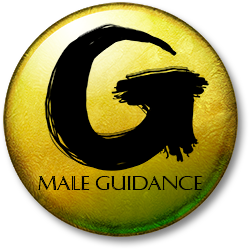
Beyond Betrayal: How to Use the 48 Laws of Power to Turn Enemies into Allies

Friends vs. Enemies? The Power Play You Didn’t Know About
Have you ever heard the saying, “knowledge is power”? Well, there are a whole bunch of “power plays” out there, and some of them might surprise you. Today, we’re diving into a surprising rule from a book called the 48 Laws of Power. This book is all about understanding how power works, kind of like a guide to being influential.
Law number two of this book might sound strange at first: Never Put Too Much Trust in Friends; Learn How to Use Enemies. Here’s the deal: this law says that your best friends might not always be the most reliable people. They might get jealous or even betray you if you become too successful. On the other hand, enemies, believe it or not, can actually be useful! By understanding their weak spots and what makes them tick, you can turn them into allies and keep them on their toes, which is actually good for you in the long run. So, buckle up, because this law flips the script on friendship and shows you how to use both friends and enemies to become more powerful!
The Downside of Trusting Friends: When BFFs Become BYEs
Law number two of the 48 Laws of Power hit us with a surprise: be careful who you trust completely, even your best friends! Here’s why. Imagine you finally mastered that super-cool skateboard trick and everyone is cheering you on. That’s awesome, right? But what if your best friend, instead of being happy for you, secretly feels jealous? Maybe they haven’t landed the trick yet, and seeing your success stings a bit. This jealousy can lead to trouble – maybe they spread rumors or try to sabotage your next attempt. Yikes!
This isn’t to say all friends turn into jealous monsters. But friendships can be complicated. People change, and sometimes those changes drive a wedge between friends. Law number two reminds us not to expect friends to always be sunshine and rainbows. They might not be there to celebrate your every win, and that’s okay. It’s just important to be aware of this possibility.
The law also tells us to forget about expecting friends to be eternally grateful for everything you do. Maybe you loaned them your favorite comic book, and they totally forgot to return it. While it’s nice to be thanked, don’t build a friendship expecting constant payback. A true friend will be there for you through thick and thin, not just when they need something.
The Upside of Using Enemies: Turning Foes into Friends (Maybe)
Okay, so we learned that best friends might not always be the most reliable teammates. But what about enemies? Buckle up, because this might sound crazy: enemies can actually be helpful! Here’s the twist. Imagine you’re in a school play, and someone keeps messing with your props or trying to trip you up during rehearsals. That person is definitely your enemy, right? But what if you could use this situation to your advantage?
Law number two says that by understanding why this person dislikes you (maybe they wanted the lead role!), you can turn them into an ally. Maybe you offer to help them with their lines or practice a tricky scene together. This shows them you’re not afraid of them, and it might even earn you some respect. Who knows, they might even stop trying to sabotage you and become a decent teammate!
Even if they don’t become your best friend forever, having an enemy can actually be a good thing. Imagine you’re studying for a big test, and your enemy is constantly bragging about how much they already know. This might annoy you, but guess what? It also lights a fire under you to study even harder. Having an enemy can keep you focused and motivated to prove yourself. So, while you might not want to hang out with your enemy on the weekend, their presence can actually push you to be your best.
How to Use Enemies Effectively: Become a Mastermind (Sort Of)
So, how do you turn that pesky enemy into a not-so-pesky ally, or at least use their negativity to your advantage? Law number two gives us some tips.
First, identify your enemy! This might seem obvious, but sometimes it’s not always clear who’s on your side and who isn’t. Notice who gossips about you, tries to get you in trouble, or just seems constantly annoyed by your presence. Once you know who your enemy is, you can start figuring out what makes them tick. Maybe they’re jealous of your grades or your talent in art class. Maybe they feel like you get all the teacher’s attention. Whatever the reason, understanding their weak spot is your first move.
Next, think about how you can use this knowledge. Can you offer to help them with something they struggle with? Maybe you can even compliment them on something they do well. This shows you’re the bigger person and not interested in a fight. Who knows, they might be surprised by your kindness and start to see you in a new light.
Remember, law number two isn’t about becoming best friends with your enemy. It’s more about understanding them and using that knowledge to your advantage. Maybe you can use their dislike for you to motivate yourself to work even harder. Or, maybe you can find a way to turn them into a (somewhat) helpful teammate. The key is to be smart and strategic – kind of like a mastermind!
Conclusion: Friends, Enemies, and the Power Play
So, Law number two of the 48 Laws of Power throws us a curveball: be careful who you trust completely, and don’t underestimate the potential value of your enemies! Remember, friends can be awesome, but they might not always be your biggest cheerleaders. On the other hand, enemies, if handled well, can become allies or at least motivate you to reach new heights.
Of course, this law isn’t about ditching your friends or turning into a master manipulator. It’s more about being aware of the different dynamics at play in friendships and rivalries. Real friends will be there for you, no matter what. But by understanding the potential downsides of friendships and the unexpected upsides of enemies, you can navigate the world of power plays a little bit smarter.
So, the next time you’re facing a challenge, remember: use your friends as your support system, but don’t be afraid to learn from (or even outsmart) your enemies. After all, a little healthy competition can push you to be your best self!











